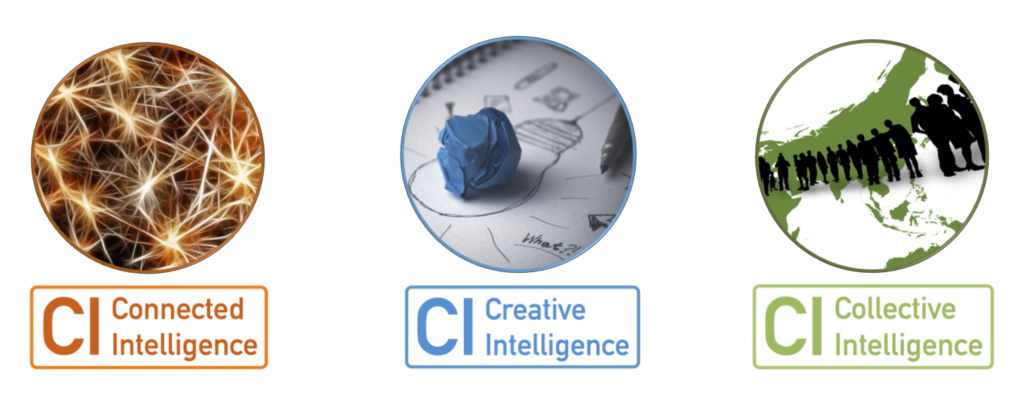Mission
The UTS Connected Intelligence Centre (CIC) operates as a creative incubator to catalyse thinking about the impact of algorithmic intelligence on education, research, and society more broadly. How should we make sense of the hype and debate around “big data”? How do analytics infrastructures embody – and thus perpetuate – particular values or worldviews?
There are three key CI’s covering our work: Connected Intelligence (human-centred, data-intensive software applications), Collective Intelligence (socialised, aggregated ideas, potentially contested) and Creative Intelligence (working with our sister initiative at UTS).
Sitting in the portfolio of the Deputy Vice-Chancellor (Education & Students), and working closely with all UTS Faculties and Student Support Units, CIC tackles this challenge through applied research, rapid software prototyping, theoretical and empirical evaluation, and education.
CIC’s activities are designed to both spark ideas and deep reflection at the intersection of computational analytics and human sensemaking.
Human-Centred
CIC adopts a human-centred approach to data science, emphasising a systemic approach and the uniqueness of the human element in analytics. Human-centred plays out in a variety of ways. People bring interpretive and narrative capacities which complement and contextualise computational intelligence. New tools need to be designed in participatory, rapid iterations. Analytics embody values and worldviews in category schemes, algorithms, and interfaces. Applied to learning, this reinforces certain epistemologies, pedagogies and assessment regimes.
Transdisciplinary
Complex sociotechnical problems are not siloed into academic disciplines. Given the transdisciplinary nature of our work, CIC will often be a broker, connecting complementary expertises in new ways as we explore how analytics shape, and are shaped by, different human contexts. CIC’s academics are recruited not only for their technical depth, but their ability to communicate complex ideas and engage in dialogue across boundaries.
Education
CIC has formal and informal educational offerings. We run the transdisciplinary Master of Data Science & Innovation degree, targeting the current workforce vacuum of technically literate staff who can also communicate with non-technical clients, translate analytics insights into potential strategic implications, and think creatively, critically and ethically about data.
We run the student and professional development course Arguments, Evidence & Intuition, which establishes core literacies in statistics and data.
We run interactive, hands-on professional development events such as NIC@CIC, and we host events where the public is invited to engage with the societal issues at stake, such as the public screening and panel debate on The Human Face of Big Data.
Learning Analytics
We are particularly interested in how data science may impact the education sector. CIC’s research ranges from foundational questions around learning theories and computational formalisation, to prototyping and evaluating next generation tools, the most promising of which will be scaled up as we work with the UTS IT Division.
CIC has particular interests in analytics that support the UTS Learning.Futures priority — cultivating the graduate attributes that equip them to navigate turbulence and complexity with resilience and creativity. Such graduates have the resources needed to thrive when challenged, embrace opportunities to learn, and the skills to engage with ill-structured, contested, socio-technical problems.
Research Analytics
The techniques developed in our research will have wide applicability. CIC will be engaging with UTS researchers interested in adding new tools to their methodological toolkits. For instance, could computational approaches to language analysis be used to make sense of the documents, transcripts or online discourse studied by researchers in other disciplines? Could techniques for tracking and aggregating learning activity in the cloud assist in tracking other kinds of activities? Could educational data mining approaches to studying collaboration yield insights into other forms of group work?
